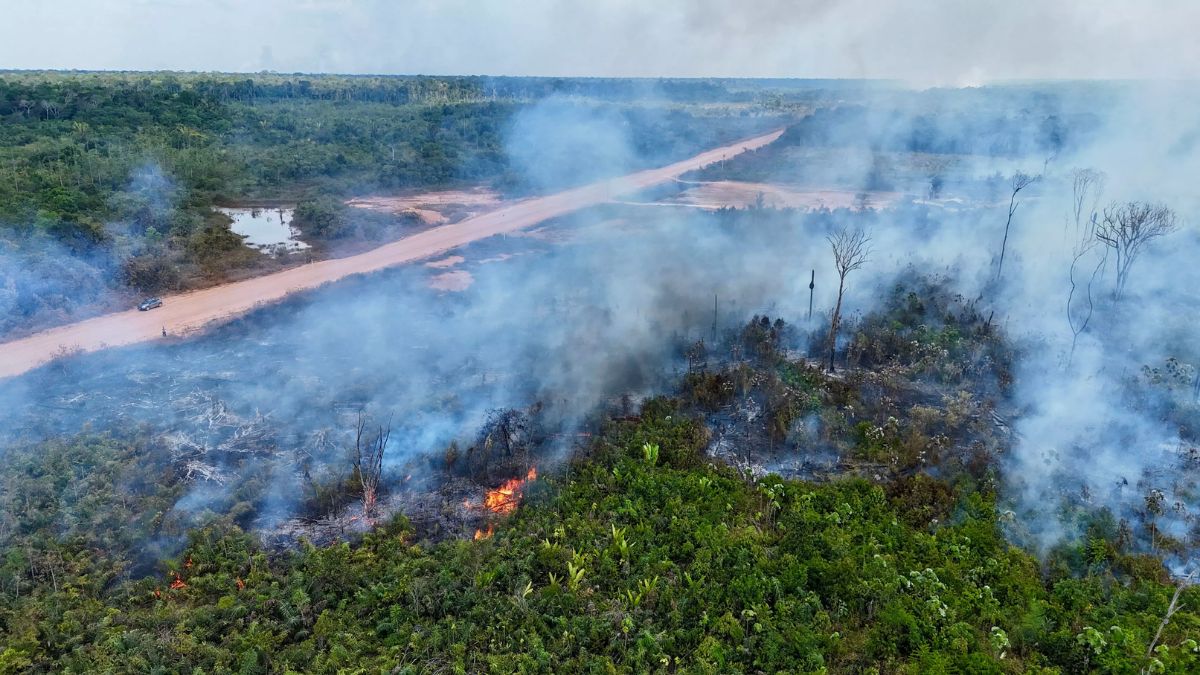The Amazon rainforest endured a devastating year in 2024, with rampant wildfires and extreme drought marking its worst 12 months since 2005. These challenges exacerbated deforestation in a biome vital to combating climate change.
Global warming fuelled severe drought, which in turn fed widespread fires. Authorities suspect many fires were deliberately set to clear land for cattle grazing, further compounding the damage.
“The fires and drought experienced in 2024 across the Amazon rainforest could be ominous indicators that we are reaching the long-feared ecological tipping point,” said Andrew Miller, advocacy director at Amazon Watch. “Humanity’s window of opportunity to reverse this trend is shrinking, but still open.”
Widespread fires and record destruction
Between January and October, more than 37 million acres of Brazil’s Amazon burned — an area larger than the state of Chhattisgarh. Bolivia experienced a record number of fires, while Venezuela, Colombia, Ecuador, and Guyana also saw surges. Fires linked to deforestation and pasture management were a key driver of the blazes.
Smoke from fires in Brazil’s Amazon, Cerrado savannah, and Pantanal wetland blanketed large areas, a testament to the scale of destruction.
For the second consecutive year, the Amazon River reached historic lows, prompting emergency declarations in some countries. One of the river’s main tributaries in Brazil dropped to its lowest level ever recorded, leaving residents in crisis.
Scope for hope
Despite the destruction, there were some gains. Forest loss in Brazil, which hosts the largest portion of the Amazon, fell by 30.6 per cent compared to the previous year, hitting the lowest levels in nine years. The improvement was attributed to the policies of leftist President Luiz Inácio Lula da Silva, who has stressed forest protection. This contrasted sharply with his predecessor, Jair Bolsonaro, under whose administration deforestation surged to a 15-year high.
Colombia also reported historic lows in deforestation in 2023, but by mid-2024, deforestation had risen again due to dry conditions caused by El Niño. “Illegal economies continue to drive deforestation in the Andean nation,” said Bram Ebus, a consultant for Crisis Group in Latin America.
Global responsibility and indigenous leadership
The year also saw progress in recognising the Amazon’s global significance and the role of Indigenous communities in conservation. At COP16, the United Nations biodiversity conference hosted in Colombia, nations agreed to grant Indigenous groups a greater voice in conservation decisions.
“If the Amazon rainforest is to avoid the tipping point, Indigenous people will have been a determinant factor,” Miller said.
The appointment of Martin von Hildebrand as secretary general of the Amazon Treaty Cooperation Organisation was seen as another step forward. “If the political will is there, international backers will step forward to finance new strategies to protect the world’s largest tropical rainforest,” Ebus said.
Impact Shorts
More ShortsWith inputs from AP
)